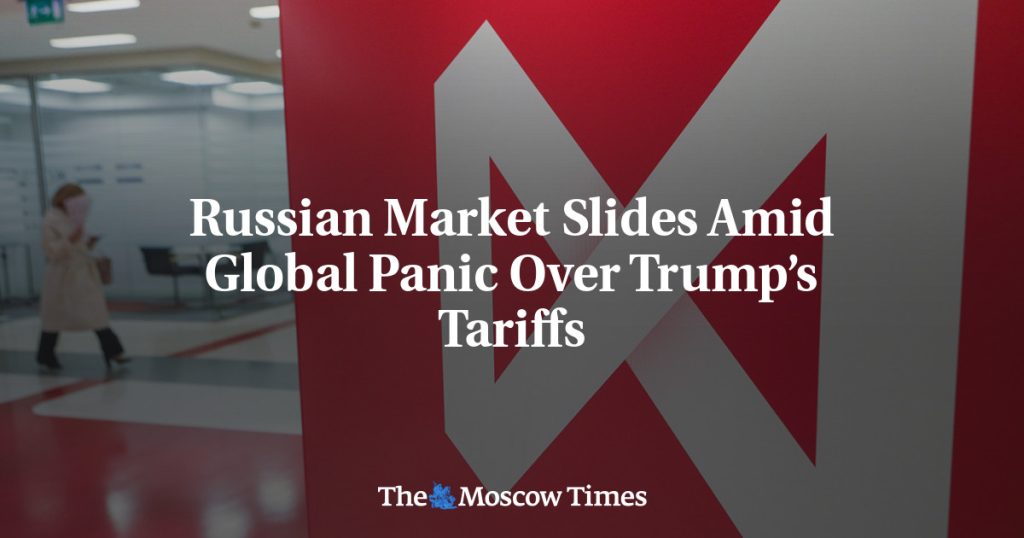Summarize this content to 2000 words in 6 paragraphs
Russia’s stock market continued sliding on Monday amid a global panic over U.S. President Donald Trump’s steadfast stance on sweeping tariffs.
The Moscow Exchange (MOEX) Russia Index had dropped 3.91% around Moscow time, marking its 14th consecutive day of losses.
Among the biggest losers was En+ Group, the parent company of aluminum tycoon Oleg Deripaska’s Rusal, which fell 9.76%. Tech giant VK dropped 8.28%, while the state-owned shipping corporation Sovcomflot lost 8.22%.
Other major companies, including conglomerate Sistema, real estate developers PIK Group and Samolet and steel and coal giant Mechel, all saw declines of more than 7%.
“Russian stocks are falling, but I don’t see any crazy drama or huge turnover here,” said Yevgeny Kogan, an investment banker and professor at the Higher School of Economics in Moscow.
In Asia, Hong Kong’s Hang Seng index plummeted 13.2%, its largest drop since the 1997 Asian financial crisis, while Taiwan’s stocks fell nearly 10% and Tokyo’s Nikkei 225 dropped 7.8%.
In Europe, Frankfurt’s DAX dropped as much as 10% in early trading before paring back some losses. By late morning, the German index and Paris were down more than 6%, while London fell 4.5%.
U.S. markets were also expected to open sharply lower later on Monday.
Although Trump’s tariffs exempted oil, gas and refined product imports, Brent crude dropped 3.75% (or $2.46) to $63.12 per barrel on Monday.
Urals crude, Russia’s key export blend, dipped below $60 per barrel, slumping to $52.76 on Friday. Analysts warn that these prices signal potential issues for the Russian budget and a likely devaluation of the ruble in the coming months.
The Kremlin acknowledged Monday the importance of oil prices for the national budget, with spokesman Dmitry Peskov describing the global market turmoil triggered by Trump’s tariffs as “extreme, hectic, tense and emotionally overcharged.”
“Our economic authorities are very closely monitoring this situation and will, of course, do everything needed to minimize the effects of this international economic storm for our economy,” Peskov told reporters.
The ruble remained at 84.27 to the U.S. dollar, 92.98 to the euro and 11.71 to the Chinese yuan by Monday afternoon. Kogan did not rule out further weakening of the Russian currency later in the day.
AFP contributed reporting.















